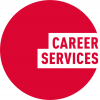
Do: Pre-register for a career fair if available so you receive all information and secure your spot.
Do: Strategically plan your time. Pick your top companies prior to the career fair. Start from the bottom of your list for practice, but leave enough time to visit all companies on your “must-see” list.
Do: Research the company ahead of time. Find out more about the company so you can prepare some informed questions.
Do: Dress as if you are going to a job interview. Professional attire helps you to create and establish a professional image. Wear comfortable business shoes.
Do: Greet the employer with a firm handshake and smile!
Do: Introduce yourself by using your 30-60 second elevator speech. Tell the employers who you are, why you are here today, what you know of the company and what you can offer.
Do: Ask informed questions about the company, employment opportunities and employers.
Do: Prepare different versions of your resume and make plenty copies. Bring your portfolio or sample work if appropriate.
Do: Thank the employers. Ask for business card or contact information. Take the initiative to suggest
Don't: Focus on quantity. It is not about how many employers you have talked to. Focus on making quality connections with your top employers.
Don't: Be afraid of approaching the employers. You are the reason why they are here.
Don't: Visit the employers in groups. Show your independency.
Don't: Just leave your resume or pick up promotional materials and walk away without talking to the employers.
Don't: Monopolize the employers’ time. Remember other students want to talk to the employers as well. Be courteous.
Don't: Go away just because a company does not have any current openings. Try to obtain contact and expand your network.
Don't: Ask questions that you can find out from the company’s website. Try to avoid too many questions related to compensation or salary.
Don't: Use filler words like “um” and “you know”
Don't: Interrupt a conversation. Be polite and wait for your turn. Take the time to observe and study the employers.
Don't: Say anything bad about their school, previous employers or companies. Stay positive.
Potential Questions to Employers (from quintcareers.com)
-
Does your company hire on a continual basis or just at certain times of the year?
-
How long does the hiring process take? What does it consist of?
-
What percent of applicants are eventually hired? What is the retention rate?
-
What are the characteristics of your most successful employees?
-
Are graduate degrees important to advancing within your organization? Which ones?
-
Which courses or experiences do you suggest to be a successful candidate?
-
What is your organization's culture like?
-
For how many years does the typical employee stay with the company?
-
Are there opportunities for ongoing training through your organization?
-
Do you expect your employees to relocate? How much travel is involved?
-
How long have you been with the company?
-
What's the one thing that most surprised you about this company?
-
What kinds of skills and experience do you look for in the employees you hire?
-
Are there specific career tracks within the organization? In other words, what can a typical employee (for the position I am seeking) hired in your division expect to be doing 2, 5, or 10 years after hiring?
-
What made you choose this company and why do you stay?
-
What kind of entry-level positions (or internships) exist within your organization?















